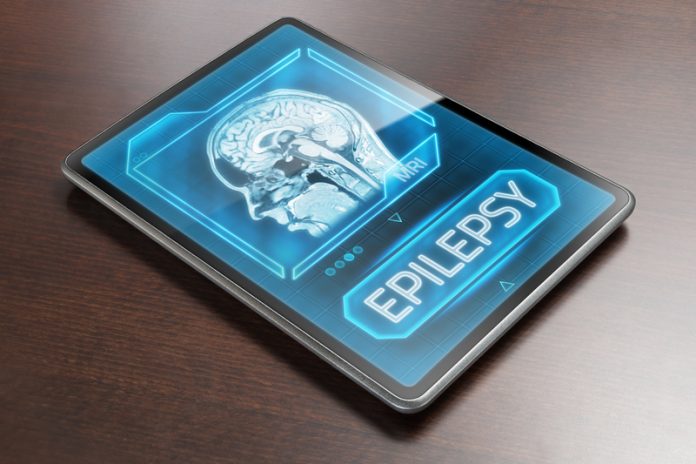Home Search
AI - search results
If you're not happy with the results, please do another search
Dhaka, The Productive City
The capital of Bangladesh, Dhaka, is often reminded as a poor, busy and polluted city in the heart of an often-flooded country. For a long time it was a quiet town, without any turbulence until recently some tension emerged. Deeper causes are not yet revealed but could have something...
Medical imaging – revolutionising healthcare
Professor Alison Murray, Director of the Aberdeen Biomedical Imaging Centre, University of Aberdeen, explains how medical imaging has transformed healthcare over the years
Modern imaging is an essential part of healthcare and has come a long way since the discovery of X-rays in 1895 by Wilhelm Roentgen. Developments by researchers...
Understanding coronary artery disease in postmenopausal ladies
Dr Stefano Savonitto, Director of Cardiology at Manzoni Hospital sheds light on the risk of heart disease in women
When thinking about their health, women are especially concerned about cancer. However, the most frequent cause of death among women is heart disease and especially coronary artery disease. The number of...
Muscling in on myopenia and myosteatosis
The relationship between body composition and risk of disease has become more clearly understood in recent years, as the technology available to non-invasively quantify components of body mass has improved. Image-based approaches specifically and precisely quantify muscle and fat, while having the capacity to also reveal additional features such...
Musculoskeletal health: perspectives in an ageing society
Dr Benjamin Ellis, Senior Clinical Policy Adviser at Arthritis Research UK details the importance of good musculoskeletal health in an ageing population
Over the last century, life expectancy has steadily risen at an extraordinary rate. Yet though we live for longer, those additional years are often plagued by ill health....
The danger of the status quo
Why we need new interventions to battle mosquito-borne diseases
Mosquitoes are the most dangerous creature in the world. They kill one person every 12 seconds and infect hundreds of millions of people each year with serious diseases. Aedes aegypti is a particularly harmful species because it mainly bites people and...
New standards for children’s unscheduled care
Dr Stephanie Smith, Consultant Emergency Paediatrician and spokesperson for the Royal College of Paediatrics and Child Health (RCPCH) details the changes needed to children’s healthcare
The NHS was dubbed the key issue in the General Election – with polls consistently revealing it was the top priority for voters 1. A...
Telehealth – empowering patients
Nichola Arathon, Principal Programme Lead at NHS Dorset Clinical Commissioning Group describes how telehealth has the potential to transform healthcare
NHS England’s ambition through the Technology Enabled Care Services (TECS) programme is to ‘create the right commissioning environment that supports and encourages the innovative use of technology to improve health outcomes...
Managing wounds as a team
Professor Zena Moore, from the European Wound Management Association (EWMA) identifies the benefits of wound care teams for patients and healthcare professionals
From a wound care perspective, the growing prevalence and incidence of non-healing acute and chronic wounds is a worrying concern. Indeed, the incidence of wounds in the EU-27 is...
Tackling child mental health
Dr Alistair Thomson, MindEd Consortium Executive and Fellow of the Royal College of Paediatrics and Child Health (RCPCH) details the importance of tackling the growing number of child mental health cases arising in the UK
Barely a day goes by without children and young people’s mental health hitting the headlines. And...
EEG Gold Standard in Epilepsy Diagnostics
Electroencephalography (EEG)
EEG visualises voltage differences recorded with electrodes located on the head. These very small (typ. 10-50 μV) voltage fluctuations resulting from ionic current flows within the brain. One of the key advantages of EEG recordings as compared to imaging techniques such as MRI (Magnetic Resonance Imaging) is the high temporal...
Psychosocial impact of epilepsy
Dr Anthanasios Covanis, President of the International Bureau for Epilepsy (IBE) details the psychosocial impact of epilepsy, and its challenges in day to day life
Epilepsy is one of the most common serious brain disorders that affects at least 65 million people worldwide in a variety of ways, and is expressed...
The million dollar question in prostate cancer research
Owen Sharp, CEO at Prostate Cancer UK sheds light on the important work that’s being done to better diagnose and treat prostate cancer
Most prostate cancers aren’t a problem. In fact, for many, the problems only come from diagnosing and treating them. These are the prostate cancers a surgeon once...
Nutrition and prostate cancer
Prostate cancer will become an increasing burden on society
Prostate cancer is now the most common malignancy in Western men, accounting for 30% of newly diagnosed cancers, and it is the second leading cause of male cancer-related death. The burden of human suffering and the cost to society are expected...
Dengue
In recent decades Dengue has become one of the most uncontrolled and neglected infectious diseases, especially in the tropical and sub-tropical regions of the world. It is believed that societal and ecological changes/movement during the World wars increased vector-borne diseases, and dengue hyperendemicity began in the Southeast Asian regions,...
Nanoimaging to cure Alzheimer’s disease
Background of Alzheimer’s disease
Alzheimer’s disease (AD) is one of the most devastating neurodegenerative disorders affecting more than 25 million people worldwide which is the fifth leading cause of death for those aged 65 years and above. The disease typically starts with a difficulty to remember new information and as...
RNA in human disease diagnosis and therapy
Professor Michela Alessandra Denti of the Centre for Integrative Biology at the University of Trento outlines the work of her laboratory on genetic diseases and cancers
The Laboratory of RNA Biology and Biotechnology at the Centre for Integrative Biology (CIBIO) of the University of Trento, Italy, is focusing on RNA...
ANR, an actor in building the European Research Area
The French National Research Agency (ANR) outlines how they are committed to increasing the quality of science funding through European collaboration
In both basic and applied research fields, funding is becoming increasingly more competitive. As a project-based funding body, ANR – the French National Research Agency – is committed to...
The role of excellent science in an ERA of innovation
Stephan Kuster, Head of Policy Affairs at Science Europe outlines the role scientific excellence plays in encouraging innovation throughout Europe
Science is surrounded by growing expectations linked to the innovation potential of scientific discoveries and new technologies. In Europe, stimulating innovation is widely regarded as the road to a sustainable...
Osborne spending squeeze underway
The Chancellor George Osborne has told government departments to start looking into where £13bn of further cuts can be made...
After five years of cutting services to the bone it is frankly astounding there is anything left to cut. However, yesterday Chancellor George Osborne called upon Whitehall departments to begin...








